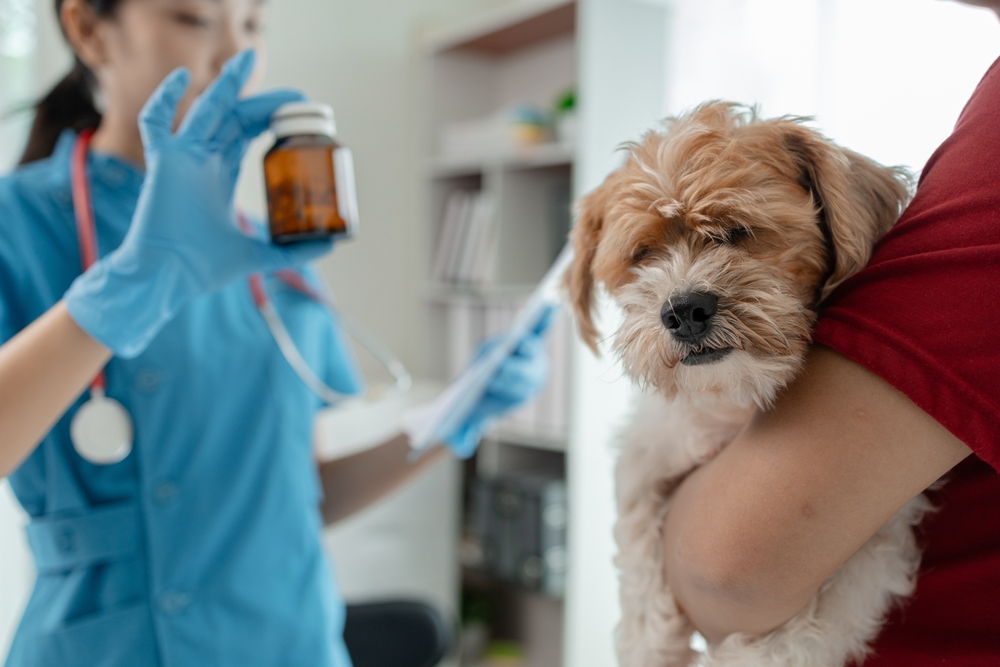Understanding Collapse in Pets: Causes and Emergency Responses
Seeing your pet suddenly collapse is an alarming and distressing experience. Whether it’s a momentary loss of balance or a prolonged episode of unconsciousness, collapse is a medical emergency that requires immediate attention.
At Mission Veterinary Clinic & Animal Emergency Hospital in Granada Hills, CA, we treat pets experiencing collapse and work to determine the underlying cause. This guide will help pet owners understand why collapse happens, what to do in an emergency, and how to prevent future episodes.
What Is Collapse in Pets?
Collapse refers to a sudden loss of strength or consciousness, often resulting in a pet falling to the ground and being unable to rise. It may last for a few seconds or persist for a longer period, depending on the cause.
There are two main types of collapse:
1. Acute Collapse
A sudden and unexpected loss of mobility or consciousness. This can be caused by neurological, cardiovascular, metabolic, or musculoskeletal issues.
2. Exercise-Induced Collapse (EIC)
A genetic condition in certain breeds, particularly Labrador Retrievers, Border Collies, and Corgis. Dogs with EIC appear normal until they engage in intense exercise, leading to weakness and temporary collapse. Learn more about exercise-induced collapse and whether your dog may be at risk.
Common Causes of Collapse in Pets
Many conditions can lead to collapse, ranging from mild and treatable to life-threatening. Some of the most common causes include:
1. Cardiovascular Disease (Heart Conditions)
Heart problems can limit oxygen delivery to the brain and muscles, leading to fainting or sudden collapse.
Signs of Heart Disease in Dogs:
- Persistent coughing
- Fatigue after minimal activity
- Labored breathing or panting at rest
- Weakness or sudden fainting spells
Heart disease is a leading cause of collapse in older pets. Learn more from Morris Animal Foundation’s guide to heart disease in dogs.
2. Neurological Disorders
Brain and nerve-related conditions can cause seizures, balance loss, or paralysis leading to collapse.
Common Neurological Causes:
- Seizures (epilepsy, brain tumors, infections)
- Vestibular disease (inner ear disorder affecting balance)
- Spinal cord injuries
If your pet collapses and exhibits twitching, convulsions, or loss of bladder control, they may be having a seizure and need immediate care.
3. Metabolic Disorders (Low Blood Sugar, Organ Failure)
Conditions affecting the liver, kidneys, or blood sugar levels can cause weakness and collapse.
Conditions That May Lead to Collapse:
- Hypoglycemia (low blood sugar in diabetic pets)
- Addison’s disease (adrenal gland dysfunction)
- Heatstroke (overheating leading to collapse and organ failure)
Pets with diabetes or hormone imbalances are at a higher risk.
4. Cancer-Related Collapse
Certain types of cancer can cause internal bleeding, anemia, or neurological damage, leading to sudden weakness or collapse.
Symptoms of Cancer-Related Collapse:
- Pale gums or sudden severe weakness
- Unexplained weight loss
- Enlarged lumps or swollen lymph nodes
For more information on cancer-related emergencies, visit the Veterinary Cancer Society’s pet owner resources.
5. Breed-Specific Health Risks
Certain breeds are more prone to collapsing episodes due to genetic predisposition.
High-Risk Breeds:
- Labradors, Border Collies, and Corgis (EIC)
- Dobermans and Boxers (heart-related collapse)
- Brachycephalic breeds (Pugs, Bulldogs, Boston Terriers—prone to respiratory collapse)
Learn more about breed-specific health risks from Pawlicy’s guide to genetic disorders.
What to Do If Your Pet Collapses
Step 1: Stay Calm and Observe Symptoms
- Is your pet conscious or unconscious?
- Are they breathing normally?
- Are they responsive when you call their name?
Step 2: Check for Signs of Life-Threatening Distress
- Pale gums or blue tongue (oxygen deprivation)
- Rapid or extremely slow breathing
- Seizures or uncontrolled twitching
Step 3: Seek Immediate Veterinary Care
- If your pet is unconscious or struggling to breathe, transport them to the vet immediately.
- Keep your pet cool and comfortable while traveling.
- Do NOT force food, water, or medication if they are unresponsive.
If your pet collapses more than once, or if symptoms persist, schedule a full diagnostic evaluation at Mission Veterinary Clinic.
Veterinary Diagnosis and Treatment for Collapse
At Mission Veterinary Clinic, we conduct thorough diagnostics to pinpoint the cause of collapse and provide the best treatment plan.
Common Diagnostic Tests:
- Bloodwork – Checks for metabolic disorders or infections.
- X-rays and Ultrasound – Identifies heart disease, tumors, or internal bleeding.
- Electrocardiogram (ECG) – Evaluates abnormal heart rhythms.
- Neurological Exams – Determines if a seizure disorder or spinal injury is present.
Treatment Options:
- Medications for heart conditions (to improve circulation and prevent fainting).
- Emergency IV fluids for shock or heatstroke.
- Seizure management with anti-epileptic drugs.
- Surgery if a tumor, internal bleeding, or obstruction is detected.
Each pet’s treatment plan is customized based on the underlying cause.

Preventing Collapse in Pets
While not all collapse episodes can be prevented, taking proactive steps can help reduce risk:
- Maintain Regular Vet Visits – Early detection of heart disease, metabolic conditions, or neurological disorders can prevent sudden collapse.
- Avoid Overexertion – Dogs with exercise-induced collapse (EIC) should have moderate exercise routines to prevent symptoms.
- Monitor Older Pets Closely – Senior pets are at higher risk for heart disease, cancer, and organ failure.
- Be Aware of Breed-Specific Risks – If your pet is genetically predisposed to collapse, work with your vet to develop a care plan.
How Mission Veterinary Clinic Can Help
If your pet has collapsed, immediate medical care is essential. At Mission Veterinary Clinic & Animal Emergency Hospital, we provide:
- Emergency care for collapsing pets
- Advanced diagnostics, including X-rays, ECG, and bloodwork
- Treatment for heart disease, metabolic disorders, and neurological conditions
- Personalized care plans to prevent future episodes
Learn more about our services: Contact Us
Collapse is a serious medical emergency—act fast and seek veterinary attention immediately.










Leave A Comment